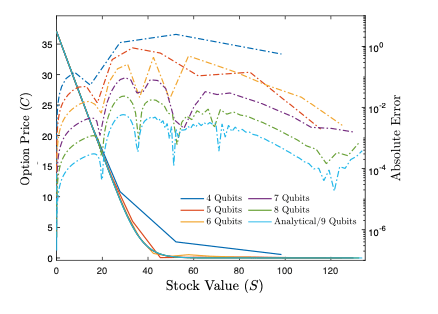Solving for molecular excited states remains one of the key challenges of modern quantum chemistry. Traditional methods are constrained by existing computational capabilities, limiting the complexity of the molecules that can be studied or the accuracy of the results that can be obtained. Several quantum computing methods have been suggested to address this limitation. However, these typically have hardware requirements which may not be achieved in the near term.
A team of scientists at Rahko and University College London has proposed a variational quantum machine learning based method to determine molecular excited states aiming at being as resilient as possible to the defects of early Noisy Intermediate Scale Quantum (NISQ) computers. They have demonstrated an implementation for H2 on IBM-Q.
Their method uses a combination of two parametrized quantum circuits, working in tandem, combined with a Variational Quantum Eigensolver (VQE) to iteratively find the eigenstates of a molecular Hamiltonian. (University College London)

